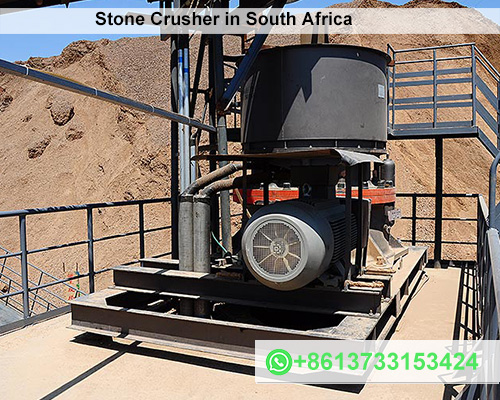Stone Crusher in South Africa
Posted: 2025-03-14 Source: Liming Heavy Industry Views: 248
Introduction to Stone Crusher in South Africa
South Africa’s booming construction, mining, and quarrying industries rely heavily on stone crusher to process raw materials like granite, basalt, and sandstone. From large-scale mining operations to small road projects, choosing the right crusher is critical for efficiency and cost-effectiveness.
This guide covers the types of stone crusher available in South Africa, factors affecting their prices, and practical advice for buyers.

Types of Stone Crusher Popular in South Africa
- Jaw Crusher
- Primary Crushing: Ideal for hard rocks like granite.
- Features: Adjustable output size (50–200 mm), rugged design for mining.
- Price Range: ZAR 150,000 – ZAR 1,500,000 (depending on capacity).
- Cone Crusher
- Secondary/Tertiary Crushing: Produces finer aggregates (5–50 mm) for concrete and asphalt.
- Benefits: Energy-efficient, low maintenance.
- Price Range: ZAR 500,000 – ZAR 3,000,000.
- Impact Crusher
- Versatile Use: Perfect for recycling concrete, bricks, and softer stones.
- Advantages: Cubical-shaped output for road construction.
- Price Range: ZAR 300,000 – ZAR 2,200,000.
- Mobile Crusher
- On-Site Flexibility: Track-mounted units crush materials directly at quarries or construction sites.
- Popular Brands: Sandvik, Metso, and local suppliers like Pilot Crushtec.
- Price Range: ZAR 800,000 – ZAR 6,000,000.
Key Factors Influencing Stone Crusher Prices
- Capacity and Size
- Small crusher (10–50 t/h): ZAR 150,000 – ZAR 800,000.
- Large industrial crusher (200+ t/h): ZAR 2,000,000+.
- Local vs. Imported Equipment
- Local brands (e.g., Pilot Crushtec) offer easier maintenance and spare parts access.
- Imported crusher (e.g., Chinese models) may be cheaper upfront but risk longer downtime for repairs.
- Fuel Efficiency
- Diesel-powered crusher cost more to operate but suit remote areas.
- Electric models save long-term costs in grid-connected sites.
- After-Sales Support
- Choose suppliers with local service centers (e.g., Johannesburg, Cape Town) for quick repairs.
Applications of Stone Crusher in South Africa
- Mining
- Processing gold, platinum, and diamond ore in regions like Gauteng and Limpopo.
- Construction
- Producing aggregates for roads, housing projects, and urban development.
- Quarrying
- Crushing limestone in KwaZulu-Natal or sandstone in the Northern Cape.
- Recycling
- Repurposing demolition waste in cities like Durban and Pretoria.
Tips for Buying Stone Crusher in South Africa
- Assess Your Needs
- Determine material hardness, required output size, and daily production goals.
- Compare Suppliers
- Trusted local brands: Pilot Crushtec, Bell Equipment.
- International brands: Metso, Terex Finlay.
- Consider Used Equipment
- Refurbished crusher cost 30–50% less than new models (check for warranty).
- Check Compliance
- Ensure crusher meet South Africa’s Mine Health and Safety Act (MHSA) standards.
Maintenance Tips for Longevity
- Lubricate Regularly: Prevent wear on bearings and shafts.
- Monitor Wear Parts: Replace jaw plates, liners, and blow bars promptly.
- Dust Control: Install water sprays or filters to meet NEMA regulations.
FAQ About Stone Crusher in South Africa
Q1: What’s the cost of a small stone crusher?
- Small jaw crusher start at ZAR 150,000 for 5–10 t/h capacity.
Q2: Are Chinese crusher reliable?
- Some are, but prioritize suppliers with local spare parts and service networks.
Q3: Can I rent a stone crusher?
- Yes! Short-term rentals cost ZAR 15,000 – ZAR 100,000/month, depending on size.
Conclusion
Stone crusher is indispensable for South Africa’s resource-driven economy. Whether you’re mining in Rustenburg or building infrastructure in Cape Town, selecting the right crusher—paired with proper maintenance—ensures maximum productivity and ROI. Always partner with reputable suppliers and prioritize equipment that aligns with local conditions.